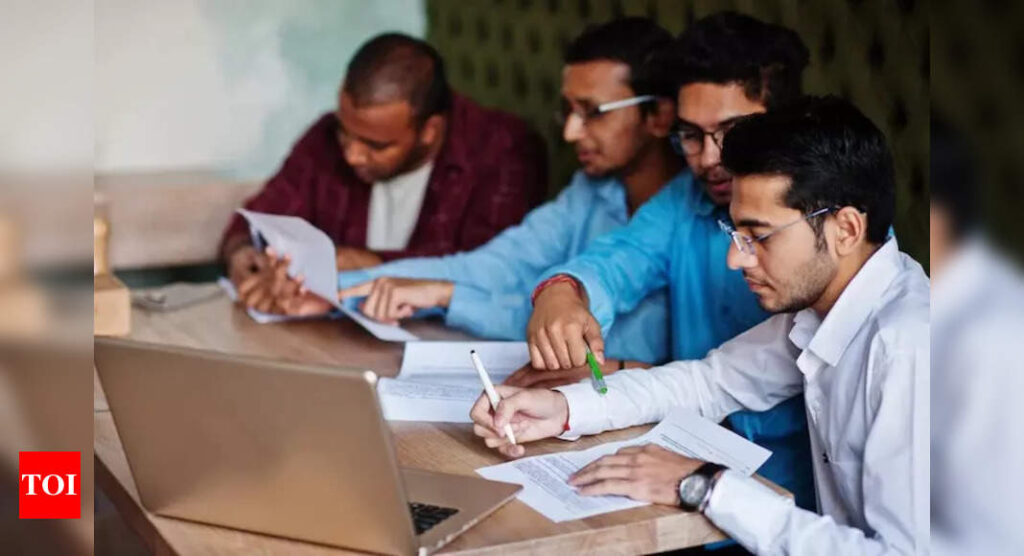Chandigarh: Additional chief secretary (ACS) of Health and Family Welfare Department, G Anupama on Wednesday asked all the concerned department heads as well as health officials to intensify efforts to follow the lines of making Haryana VBD free in accordance to the deadline set by government of India.
ACS shared this while charing an inter-sectoral meeting called to review the arrangements of VBD in the state. She asked the heads of departments epartments to chalk out cumulative strategy for the prevention & control of Vector Borne Diseases (VBDs).
Managing Director, National Health Mission (NHM) Haryana, Rajnarayan Kaushik, DGHS Haryana, Dr. Usha Gupta and other officers from State HQs (VBDs) also attended the meeting.
During the meeting, Dr. G. Anupama, informed that the Minister of Health and Family Welfare, Government of India has set the target of malaria elimination by the year 2027 from the State of Haryana (with low malaria incidence) and by the year 2030 from the country.
She further added that the State of Haryana is poised to the path of malaria elimination. Eight Districts viz. Ambala, Fatehabad, Gurugram, Jind, Kaithal, Kurukshetra, Palwal and Panchkula reported ‘Zero Indigenous Malaria Case’ during the year 2022. Further, the health department has already intensified all preventive & control measures to minimize the occurrence of VBDs and prevent death due to VBDs, especially dengue during the year 2023. To further strengthen the activities, help of other departments is also being sought for management of stagnant water responsible for mosquito breeding.
Divulging more details, Dr. Usha Gupta, told that there are four Vector Borne Diseases prevalent in Haryana i.e. Malaria, Dengue, Chikungunya and Japanese Encephalitis (JE), transmitted by the bite of infected mosquitoes which breed in stagnant water. The rainy season is closely correlated with the occurrence of VBDs as the chances of creation of mosquito breeding sites increase due to collection of the rain water. Therefore, emphasis is laid on Source Reduction Activities.
She further informed that all four VBDs prevalent in the State have been made notifiable till 31st March 2024 under Epidemic Disease Act 1897, therefore it has been mandatory for all hospitals/labs to inform about reporting of any case of VBDs in their institutions. Special attention is also being given on dengue control. Dengue test is available free of cost in Govt. hospitals and at present, total 27 Dengue Testing Labs are functional in the state, at least one in each District.
Meanwhile, the Urban Local Bodies Department was directed to carry out case-based fogging (not random fogging) to prevent further transmission of diseases. Directions were also issued to prepare the schedule of fogging in coordination with the health department to carry out fogging in the transmission season. Notice/challan i.e. Rs. 200 to Rs. 2000 as per provision under Bye-Laws (control on VBDs)-2010 will also be issued to the owner of premises (house-holds, shops, factories owner etc.) where mosquito breeding is found. Other major activities for ULBs include shifting away of garbage, prevention of stagnation of water in urban areas etc.
DO’S & DON’TS FOR PUBLIC:
ACS shared this while charing an inter-sectoral meeting called to review the arrangements of VBD in the state. She asked the heads of departments epartments to chalk out cumulative strategy for the prevention & control of Vector Borne Diseases (VBDs).
Managing Director, National Health Mission (NHM) Haryana, Rajnarayan Kaushik, DGHS Haryana, Dr. Usha Gupta and other officers from State HQs (VBDs) also attended the meeting.
During the meeting, Dr. G. Anupama, informed that the Minister of Health and Family Welfare, Government of India has set the target of malaria elimination by the year 2027 from the State of Haryana (with low malaria incidence) and by the year 2030 from the country.
She further added that the State of Haryana is poised to the path of malaria elimination. Eight Districts viz. Ambala, Fatehabad, Gurugram, Jind, Kaithal, Kurukshetra, Palwal and Panchkula reported ‘Zero Indigenous Malaria Case’ during the year 2022. Further, the health department has already intensified all preventive & control measures to minimize the occurrence of VBDs and prevent death due to VBDs, especially dengue during the year 2023. To further strengthen the activities, help of other departments is also being sought for management of stagnant water responsible for mosquito breeding.
Divulging more details, Dr. Usha Gupta, told that there are four Vector Borne Diseases prevalent in Haryana i.e. Malaria, Dengue, Chikungunya and Japanese Encephalitis (JE), transmitted by the bite of infected mosquitoes which breed in stagnant water. The rainy season is closely correlated with the occurrence of VBDs as the chances of creation of mosquito breeding sites increase due to collection of the rain water. Therefore, emphasis is laid on Source Reduction Activities.
She further informed that all four VBDs prevalent in the State have been made notifiable till 31st March 2024 under Epidemic Disease Act 1897, therefore it has been mandatory for all hospitals/labs to inform about reporting of any case of VBDs in their institutions. Special attention is also being given on dengue control. Dengue test is available free of cost in Govt. hospitals and at present, total 27 Dengue Testing Labs are functional in the state, at least one in each District.
Meanwhile, the Urban Local Bodies Department was directed to carry out case-based fogging (not random fogging) to prevent further transmission of diseases. Directions were also issued to prepare the schedule of fogging in coordination with the health department to carry out fogging in the transmission season. Notice/challan i.e. Rs. 200 to Rs. 2000 as per provision under Bye-Laws (control on VBDs)-2010 will also be issued to the owner of premises (house-holds, shops, factories owner etc.) where mosquito breeding is found. Other major activities for ULBs include shifting away of garbage, prevention of stagnation of water in urban areas etc.
DO’S & DON’TS FOR PUBLIC:

